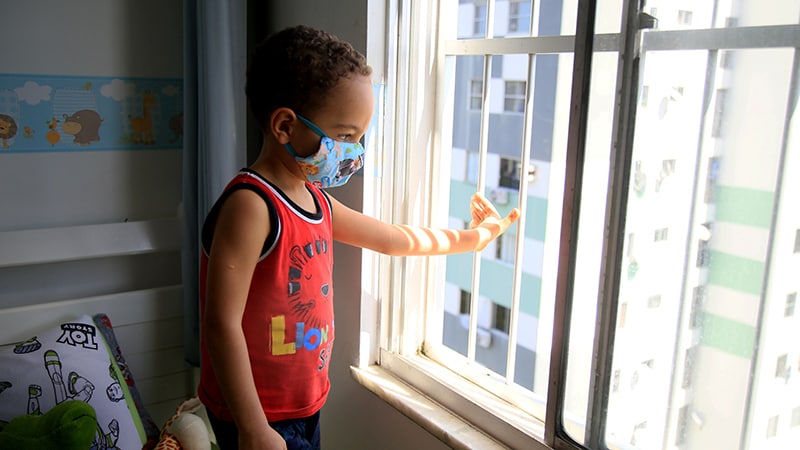Editor’s note: Find the latest long COVID news and guidance in Medscape’s Long COVID Resource Center.
A book published by the Oswaldo Cruz Foundation (Fiocruz), Brazil, which was based on research conducted in 68,000 Brazilian young adults in 2021, describes the impact of COVID-19 on work, study, mental health, and other outcomes in this population.
Titled Jovens E Saúde: Revelações da Pandemia No Brasil 2020–2022 (Young Adults and Health: Revelations Regarding the Pandemic in Brazil, 2020–2022), the book was published digitally and presents analyses of the results of the second edition of the Young Adults and the Coronavirus Pandemic Study carried out by researchers from the city of Brasilia and the states of Mato Grosso, Rio de Janeiro, Santa Catarina, and São Paulo.
This initiative aims to help healthcare professionals create strategies to improve the care provided to young adults.
The first part of the book addresses how the pandemic has affected young adults. It associates these effects with the social, political, and economic contexts in which young adults live. In the second part, the authors analyze the health and living conditions of Brazilian young adults with respect to self-care; work, region, and education; gender and race; information and communication; and public life.
One of the issues emphasized is that COVID-19 manifests itself differently among the younger populations. Raphael Mendonça Guimarães, PhD, is a public health specialist and researcher at the Sérgio Arouca National School for Public Health, which is affiliated with the Fiocruz. “With new coronavirus variants circulating in Brazil and lower vaccination rates, it is important to be aware of the oscillations in disease occurrence pattern per age range,” he said. Guimarães, who is also one of the e-book’s authors, added, “The screening protocols used at the units that are the first point of care for the healthcare system need to be adapted to this situation.” According to the researcher, patients aged 15 to 29 years must be screened for COVID-19 even if they do not have any respiratory symptoms, because they could be experiencing atypical symptoms. Guimarães also reported that he has observed young patients who are positive for COVID-19 who present with headaches and gastrointestinal symptoms, such as stomachache and vomiting, but who have no respiratory or similar symptoms.
According to Guimarães, the pandemic’s “rejuvenation” occurred because distinct demographic dynamics marked Brazil’s first 2½ years of the COVID-19 pandemic. At a particular moment, when the selective vaccination of the elderly and healthcare professionals was still in its early stages, the younger generation went back to their daily routine. Therefore, those aged 15 to 29 years, the country’s younger and economically active population, once again began to gather in specific locations, such as on public transport, but did not use protective measures, even though the vaccines were not yet available to this age group. This issue was compounded by the emergence of new variants of COVD-19 in the country.
At the same time, more young patients were hospitalized for extended periods, leading to a shortage of hospital beds. Since then, physicians have been reinstructed to detect early signs of the disease in younger patients to avoid intensive care unit admissions. “Since there is a lower prevalence of chronic and inflammatory diseases in younger patients than in the elderly, the onset of COVD-19 tends to be more insidious and, very often, asymptomatic,” the public health specialist explained.
Regarding prevention, Guimarães pointed out that physicians are also responsible for insisting that this younger population go back to using a mask in enclosed spaces and to taking all the doses of the vaccine while rates of COVD-19 transmission are higher. He suggests running vaccination campaigns at schools and universities to broaden vaccine coverage. Moreover, he believes that ensuring adequate testing, especially during mass events, is crucial. “One of the biggest mistakes Brazil made during this pandemic was that we only tested those who had symptoms, and those who did not have any continued freely transmitting the disease,” he argued. Requiring proof of vaccination at shows and parties is one way to contain the proliferation of the coronavirus.
Public health specialist Bianca Borges Leandro, a professor and researcher at the Fiocruz Joaquim Venâncio Polytechnic Health School, who wrote two chapters of the book, emphasized that physicians and other healthcare professionals must broaden their view of young adults to include more of the issues highlighted by the national study. “There tends to be a consensus in associating ‘young adult problems’ with unwanted pregnancy and drug and alcohol use,” Leandro said. However, suicide and self-harm — problems addressed in the chapter on young adults and mental health — have been more common among those seeking healthcare services, and healthcare professionals are not always prepared to deal with these patients.
According to Leandro, there is a stigma associated with mental illness, and such illnesses are usually treated with medication. She explained that complaints of loss of interest in normal activities, tiredness, and sadness must not be disregarded. Leandro also pointed out that the pandemic affected the spirituality of young adults, as spaces used to express one’s faith are essential for individual well-being and social interaction.
Leandro also recommends paying attention to food insecurity and difficulties regarding access to a source of income, issues the national survey raised as well. “Care must be provided in conjunction with other sectors to assess whether the families of young adults can receive any type of benefit from social services, support organizations, or community networks to assist them with going back to school, for example, which is a place where they have access to food and protection,” said Leandro.
Regarding jobs, the study showed that delivery services by motorcycle, which became more popular during the COVID-19 pandemic (and in which the working conditions are very precarious), were performed mainly by young Black males. In doctor’s offices, the results appear as trauma from road traffic collisions and repetitive strain injuries.
This article was translated from the Medscape Portuguese edition.
Source: Read Full Article
